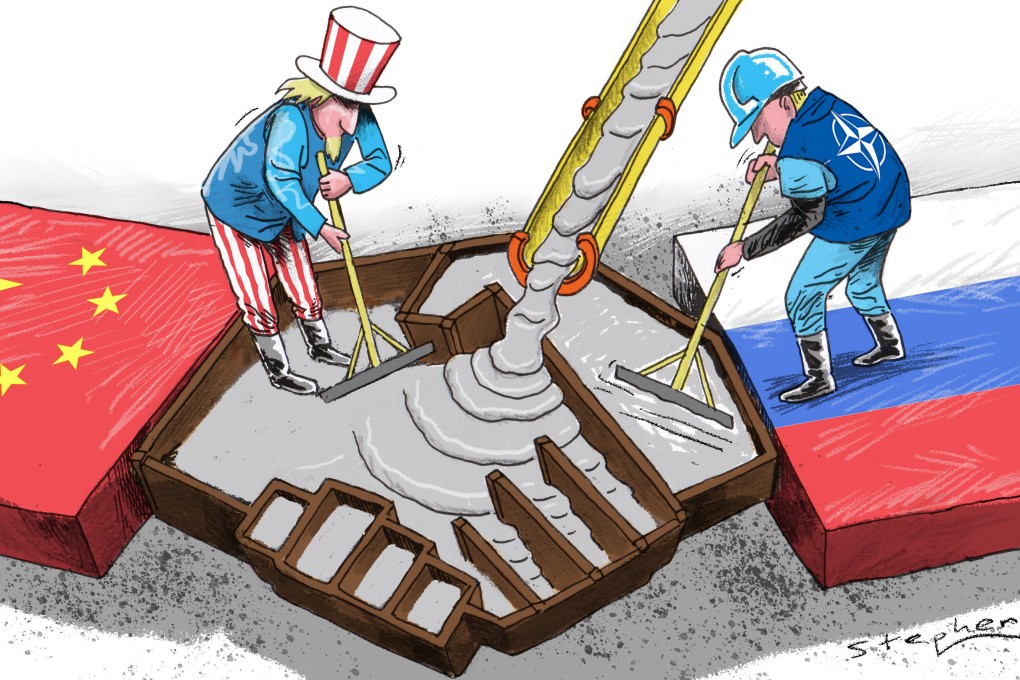Advertisement
Opinion | How Western pressure is pushing China and Russia ever closer
- Beijing and Moscow have intensified their collaboration, ranging from deepening military, political and economic ties to hitting new levels of cooperation on energy and space research
- This comes amid increasing rhetoric targeting the two from the US, Nato, the G7, the EU and others
Reading Time:4 minutes
Why you can trust SCMP
23

No sooner had the video conference between US President Joe Biden and Russian President Vladimir Putin finished than Biden promised “devastating consequences” in the form of new sanctions against Moscow should it act recklessly on Ukraine. Putin detailed Russia’s red lines on Ukraine, including deployment of strike weapons and Nato’s eastward expansion.
Advertisement
Instead of seeking compromise, the US and its allies appear to be growing more acrimonious towards Russia as well as China. In October, US Defence Secretary Lloyd Austin attended the first post-pandemic meeting of the transatlantic security alliance’s defence ministers, putting China on the summit’s agenda along with Russia’s “malign activities”.
The US deemed China a “pacing threat” during the meeting, while Nato identified it as a challenge in artificial intelligence and weapons systems. Nato Deputy Secretary General Mircea Geoana went on to detail China’s advancements and how it was “expanding its global economic and military footprint in Africa, in the Arctic and in cyberspace. And it’s investing in our own critical infrastructure, from 5G networks to ports and airports.”
China’s rise and the Russian threat dominated Nato’s agenda, and both were incorporated into a revised version of the group’s 10-year strategy, released on November 25. The new document described China as a “systemic challenge” to Nato on a par with Russia, a stark departure from the previous 10-year strategy document which did not mention China at all.
Rhetoric targeting Russia and China is not exclusive to Nato but is increasingly present in other US-led forums. The recent Group of 7 foreign ministers meeting in Liverpool, UK, opened with a theme of collective defence “against the growing threats from hostile actors”. With the departure of German chancellor Angela Merkel, seen as one of the last pragmatic voices on China in Europe, the bloc could grow more in tune with Nato and the US.
Josep Borrell, the European Union’s foreign policy chief, has described China as a “strategic and ideological challenge”. This adds to the other issues complicating relations, including Beijing’s quarrel with Lithuania over its relations with Taiwan and the growing diplomatic boycott of the Beijing Winter Olympics.

Advertisement
